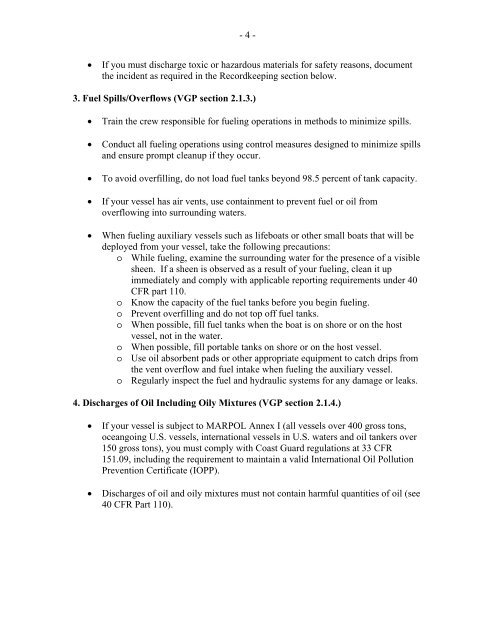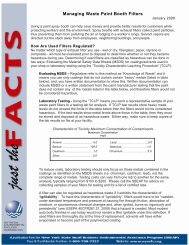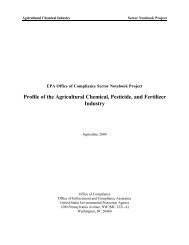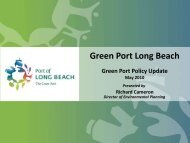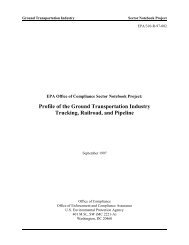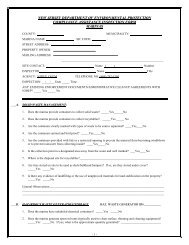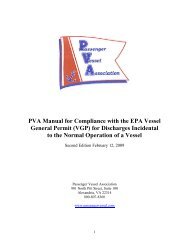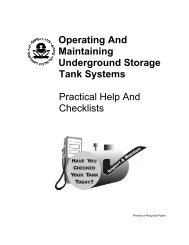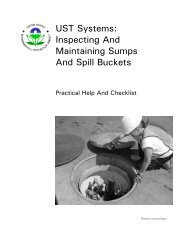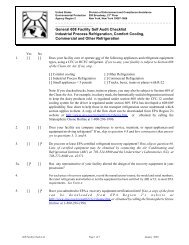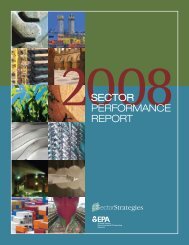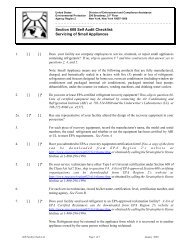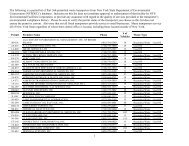AWO Recommended Practice Guide - The American Waterways ...
AWO Recommended Practice Guide - The American Waterways ...
AWO Recommended Practice Guide - The American Waterways ...
You also want an ePaper? Increase the reach of your titles
YUMPU automatically turns print PDFs into web optimized ePapers that Google loves.
- 4 -If you must discharge toxic or hazardous materials for safety reasons, documentthe incident as required in the Recordkeeping section below.3. Fuel Spills/Overflows (VGP section 2.1.3.)Train the crew responsible for fueling operations in methods to minimize spills.Conduct all fueling operations using control measures designed to minimize spillsand ensure prompt cleanup if they occur.To avoid overfilling, do not load fuel tanks beyond 98.5 percent of tank capacity.If your vessel has air vents, use containment to prevent fuel or oil fromoverflowing into surrounding waters.When fueling auxiliary vessels such as lifeboats or other small boats that will bedeployed from your vessel, take the following precautions:o While fueling, examine the surrounding water for the presence of a visiblesheen. If a sheen is observed as a result of your fueling, clean it upimmediately and comply with applicable reporting requirements under 40CFR part 110.o Know the capacity of the fuel tanks before you begin fueling.o Prevent overfilling and do not top off fuel tanks.o When possible, fill fuel tanks when the boat is on shore or on the hostvessel, not in the water.o When possible, fill portable tanks on shore or on the host vessel.o Use oil absorbent pads or other appropriate equipment to catch drips fromthe vent overflow and fuel intake when fueling the auxiliary vessel.o Regularly inspect the fuel and hydraulic systems for any damage or leaks.4. Discharges of Oil Including Oily Mixtures (VGP section 2.1.4.)If your vessel is subject to MARPOL Annex I (all vessels over 400 gross tons,oceangoing U.S. vessels, international vessels in U.S. waters and oil tankers over150 gross tons), you must comply with Coast Guard regulations at 33 CFR151.09, including the requirement to maintain a valid International Oil PollutionPrevention Certificate (IOPP).Discharges of oil and oily mixtures must not contain harmful quantities of oil (see40 CFR Part 110).


